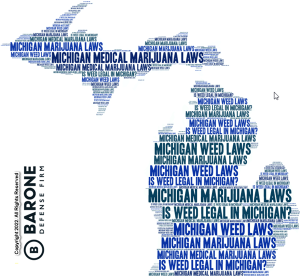Search
OWI vs DUI: An OWI Charge in Michigan & the DUI Legal Term
Driving a vehicle while intoxicated is a serious criminal offense across the United States. In the United States, and in no other nation, this crime is not always called a “DUI,” but D.U.I. is America’s most widely used abbreviation for this common driving crime.
Broadly stated, the crime best known as DUI (driving under the influence of intoxicants) has separate and distinct statutes in each. All 50 states and the District of Columbia created their own laws, with no two states tracking another exactly on what constitutes the evidence needed for a DUI conviction.

This seemingly schizophrenic roll-out of statutes has important and fascinating historic roots, that have occurred since the early 1900s. For example, forensic breathalyzers were only invented and deployed in the late 1930s. Before that, an officer had to obtain a blood alcohol content test in any case that needed that proof of intoxication (e.g., a crash occurred, and the suspected drunk driver was not conscious).
 Michigan Criminal Defense Lawyer Blog
Michigan Criminal Defense Lawyer Blog





